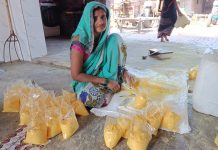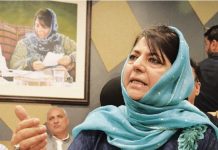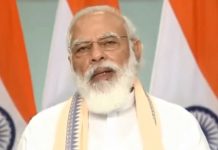
Fazilhaq Hashimi, Khalid Ahmad Atif, Helay Rahim, Hoshang Sulaimanzada
EDITED EXCERPTS FROM AN INTERVIEW
This fascinating anthology came as a result of a creative writing workshop you held in Afghanistan. How was the experience, and what were some of the things you sought to address in this workshop?
I didn’t have things I necessarily wanted to address. I took writing workshops for over three years in Kabul. I didn’t intend on an anthology. If anything, I’m fairly skeptical of the packaging of Afghanistan as a bunch of white Toyota trucks and one-eyed Talibs terrorising the populace. On the other hand, there were the white trucks and the brutality of the Taliban regime, so it couldn’t be nixed. It wasn’t my place to write the stories, but to tell the writers what we (non-Afghans) hadn’t heard: how they loved, how they fantasised, what impact growing up in Iran or Pakistan may have had on them, or how they adapted to the strict edicts of the Taliban. The practicalities of writing — point of view, tense, areas where there could be greater detail, revision — these I worked on with writers individually, once I saw the shape of their stories and the originality in them. I read hundreds of stories and selected very few. I worked with pieces, and with writers I felt had distinct voices; or those who took risks or simply avoided the stereotypical. The experience of working with these writers humbled me. There are instances of great pain, of trauma. But there are simple stories, too, where poverty is depicted with great generosity, and loyalty transcends mourning.
Were you surprised at the quality of the stories that your students wrote?
Not the quality. There were many deficiencies in the first drafts that had to do with their writing in English, which was not their first language. I was surprised by the way English seemed to provide a space for risks that I think Dari, Pashto, Farsi or Urdu would have inhibited. It felt as though English permitted them to write without a reader in mind. This freed them to be critical of the Mujahedeen, to be more sympathetic to the Russians, even writing about Afghan Jews, Mickey Spillane novels, homosexual desire. These stories would probably have not been easy to write if they felt they were too accessible to people they knew. In the end, most did not choose anonymity. Only those in higher positions chose it.
How important is it for a culture coming to terms with its violent past to build a literature that addresses it? Does anything of that sort exist in Pashto or Dari?
I imagine it does exist in Pashto or Dari, but again, probably not in the short story form. Perhaps poetry. Eliza Griswold’s I Am The Beggar of The World provides amazing examples of the two-line poems known as landays that are memorised by Afghan women. Some of the landays are quite old, and some incorporate drones and American soldiers. I am not certain that literature helps a culture come to terms with a violent past, but I am sure it makes it impossible to simplify the past, or to collectivise it. Writing is essentially individual and comes from a spirit of independence; I would say that’s what makes it great — it speaks for itself. I’m thinking of books like A Woman in Berlin or Nicholson Baker’s Human Smoke: The Beginnings of World War II, The End of Civilization or Peter Handke’s A Sorrow Beyond Dreams. All of these books complicate the American narrative of World War II and have been deeply influential on my thinking about that war. They may not change the grand narrative, but for me, they make grand narratives seem suspect.

You write in your introduction how your students barely trust that “the past is the past and not the prelude”. How do Afghans under 30 see this present, uncertain moment?
Many Afghans have already lived as refugees and they’re not going anywhere. Many have already left. Many who are working for the US or UN and have the skills to work internationally are applying for visas. But the overwhelming sense I get is that Afghanistan will weather this transition, that there is hopefulness, and that the civic work has been ongoing. The post-war reconciliation feels very real to me, but then I’m an outsider. I think many Afghans would agree that the past decade has created a space for dialogue to begin. And this is impossible to sell people on: that the war, which is not a war in the traditional sense, but a war with “nation building” or “capacity building” at its heart, is in many ways a good thing. At the cost of so many lives and so much money, liberals and conservatives don’t want to hear about the effectiveness of creating space for talk and creative thinking. But I think it’s the only achievement that is guaranteed to last.
It is, of course, important to note that this isn’t a society coming out of war, but one where war has been a constant presence throughout its history. Are notions of war and peace more fluid in Afghanistan?
Well, it’s hard to say. I think when one experiences war, there’s no denying it. Afghans know very well what they’ve gone through. They’re highly sensitive to war, having seen it demolish their cities and separate its people. On the other hand, I think the rest of the world has had a troubling experience with the fluidity of war, how and when we use the term. I think it’s fair to say the United States is engaged in an undeclared war with Pakistan, which is why we call this our Af-Pak conflict, or at least we did. But this war, too, is difficult to simplify, since I believe the US does collaborate with Nawaz Sharif to use drones in the tribal areas. I also know that US aid is sent to Pakistan and not rebuffed. War is a madman’s method at stability, but in the name of stability, we have accommodated gross injustices globally. In some cases, that stability may be so precious it seems worth military intervention.
Your students wanted this anthology to be published everywhere except for Afghanistan itself. Are you hopeful that these discussions can take place within Afghan society anytime soon? What are the obstacles that prevent such dialogue?
The discussions are happening. Perhaps, people aren’t willing to disclose their names, put it in writing. They’re still pushing the limits of what can be said and attributed. But none of these stories came from my suggestions. The writers want to address the hypocrisy of religious purists, the economic inequalities in their country, the belief that Afghanistan is a place to go to “get your Jihad on” –whether we’re talking Osama bin Laden or an American or European war reporter. I’m not saying the three are the same. But perhaps they see Afghanistan as remote, victimised, abundantly cruel or abundantly pious. It is none of these things. Our greatest obstacle to knowing how to look at Afghanistan is the stories we’ve told ourselves about it. I hope the stories they write will chip away at that façade, and show us their humor, their tenderness, their inventiveness. It’s all there, along with their endurance.
ajachi@tehelka.com













